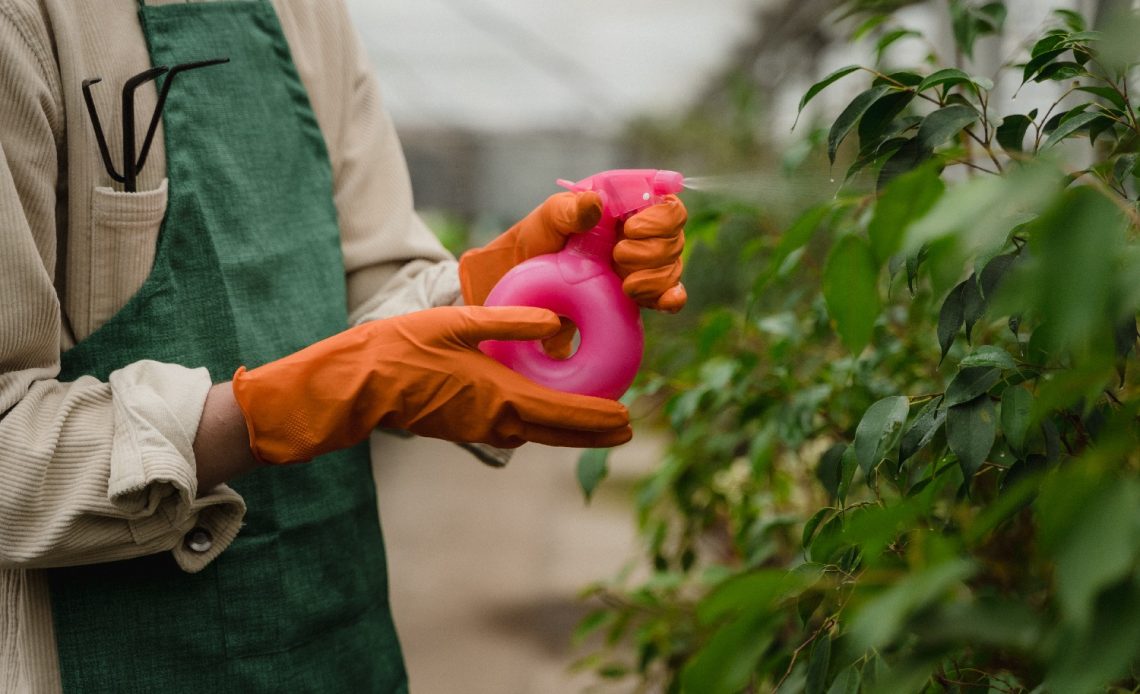

We’re here to help! Wild Yards is a completely free website that is 100% dedicated to helping you create a wildlife-friendly, sustainable yard. Read more
WildYards is reader-supported. When you buy a product through a link on our site, we may earn a comission. Every product is independently selected by our (obsessive) editors and our reviews are unbiased and objective. Read more about our mission or our privacy policy.
Gardening is a relaxing, rewarding hobby, but it requires constant vigilance. Between the nutrient-leeching weeds and the ornamental-eating deer and rabbits, it takes a lot of work to keep your plants healthy and in one piece. Insects, too, can turn your flower garden and vegetable patch into a pile of sticks. Fortunately, it’s easy to make a homemade insecticide that’s extremely effective at repelling some of the most damaging plant-eating insects.
A homemade insecticide can be used to repel worms, aphids, grasshoppers, flies, beetles, and other plant-eating pests. Our homemade insecticide recipes feature ingredients like vinegar, garlic, and essential oils that will help keep pesky bugs off your plants without harming the many pollinators that enjoy visiting your garden.
Why is a homemade insecticide better than a store-bought insecticide?
Many store-bought insecticides contain harsh chemicals. And while these chemicals will certainly kill most harmful insects, they will also kill beneficial ones, including ladybugs, hoverflies, spiders, and especially bees, who are currently endangered in large part because of these toxic sprays.
To make matters worse, some pesticides that are marketed as “bee-safe” can still have deadly consequences for bees. If even just a few bees within the same hive come into contact with these harsh insecticides, they bring the residual chemicals back to the hive, putting the health of the whole colony in jeopardy. And those damaging effects can last for generations.
When you take the time to mix up your own homemade insecticide, you know exactly what’s in it. And while the household ingredients included in these recipes will help repel the bad bugs, when used correctly, they won’t kill the good ones. So with a little extra effort, you can protect both your valuable landscaping and the local pollinators all at the same time.
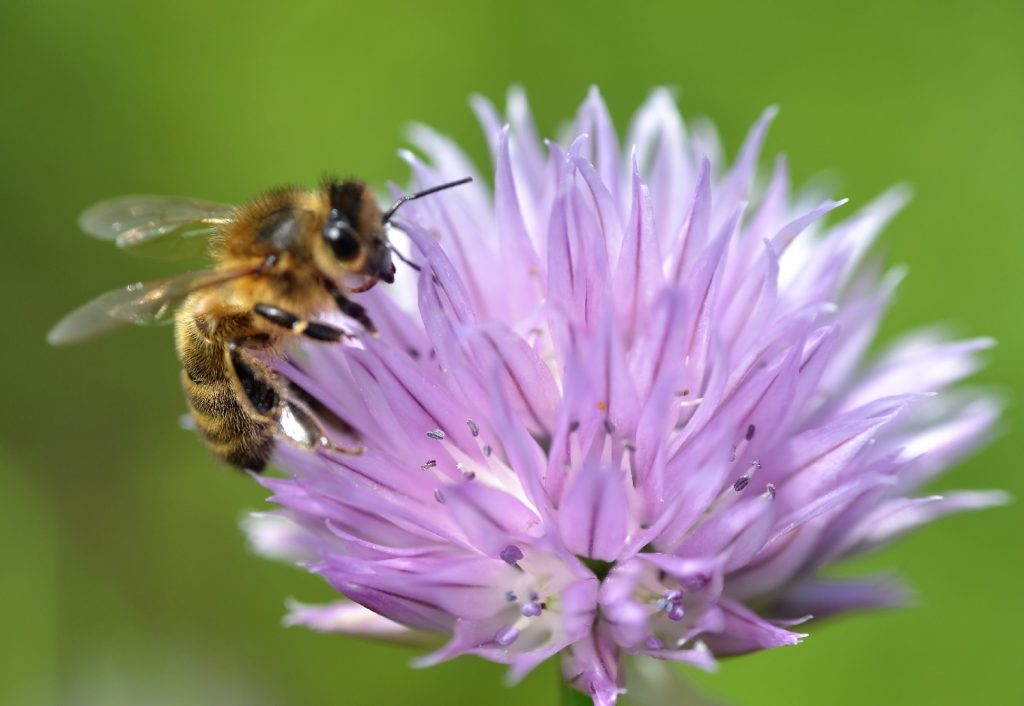
How do homemade insecticides benefit fruit and vegetable plants?
A few bugs on your fruit trees and vegetable plants can be plucked off manually. There are preventative measures that you can take to fight insect infestations, too. Companion planting works well. Releasing ladybug larvae in your vegetable patch to control the pest levels naturally is another option. But if it’s too late to prevent the problem, you’ve got to act fast otherwise you’ll lose all your crop to the pests. Sometimes insecticides are the only choice.
One major downside to storebought insecticides, however, is that they leave residue on fruits and vegetables. Even a good scrubbing with soapy water won’t remove the chemicals entirely because the fruits and vegetables absorb trace amounts of these substances and retain them in their flesh.
Our homemade insecticide spray recipes contain natural ingredients that will help keep bugs at bay, and won’t contaminate your produce. Once you harvest them, you can wash them off and eat them with confidence knowing you won’t be filling your body with toxins.
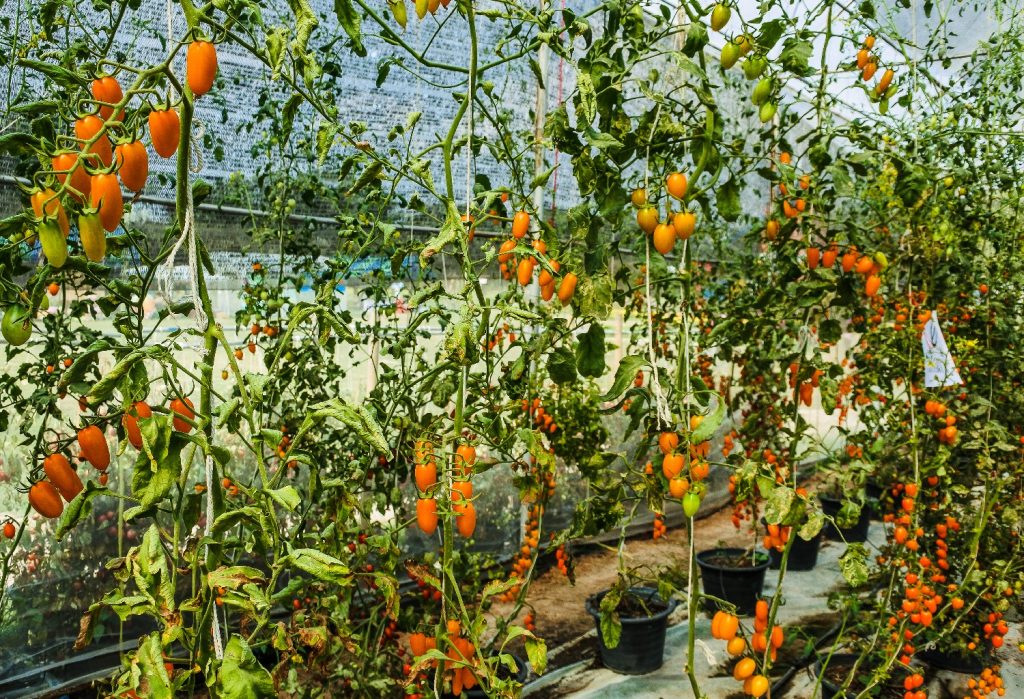
9 Homemade insecticide recipes for your garden
The best thing about our homemade insecticide spray recipes is that the ingredients are easy to find. You probably already have most of them on hand, so you won’t even have to make a special trip to the store.
There is one thing to keep in mind. Sometimes insects develop a tolerance to certain pesticide sprays. For this reason, we strongly recommend alternating between homemade insecticide recipes. Using a variety of bug repellents will produce better results than relying on the same recipe for months at a time. So don’t forget to mix things up now and then.
Tomato leaf insecticide
Many plants produce alkaloids to defend themselves from hungry insects. The alkaloid that tomatoes produce is called tomatine, and it’s one of the strongest natural insect repellents out there. Aphids, spider mites, and other insects are naturally repulsed by this alkaloid. And, as a bonus, tomatine also inhibits many of the fungi that can destroy your plants.
To make a tomato leaf insecticide, pour 4 cups of water into a large bucket and add 2 cups of chopped tomato leaves. Allow this mixture to brew overnight, then strain the leaves and pour the water into a sprayer to apply it to your plants. Tomato leaf is fragrant, so you’ll be able to tell when the mixture starts wearing off your plants. Be sure to reapply it regularly, especially after rain.
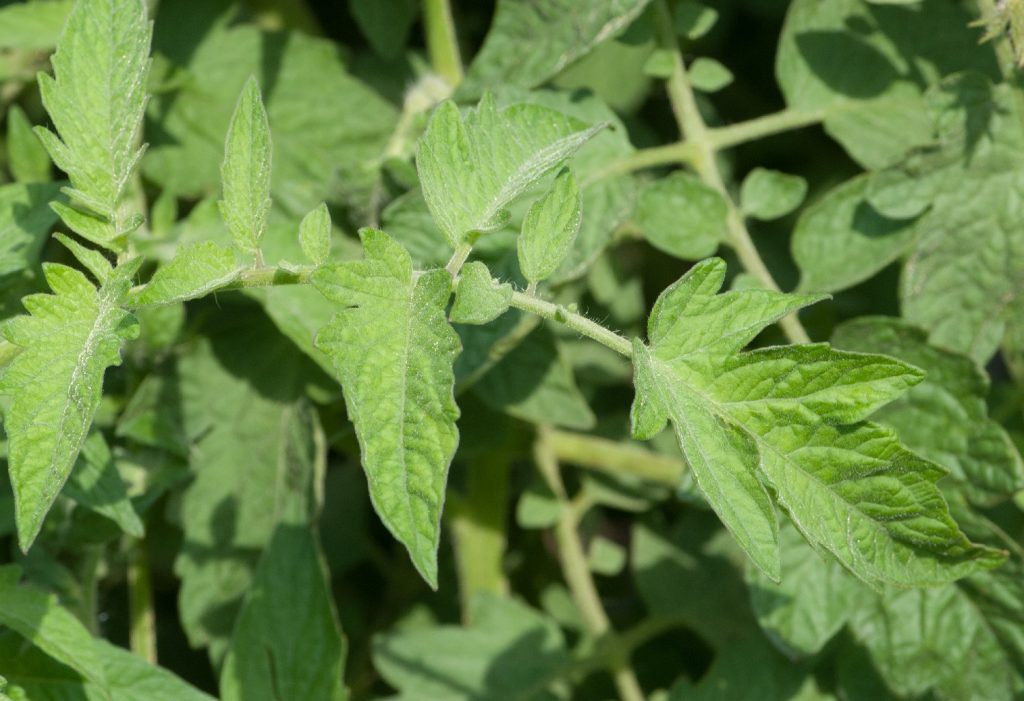
Citrus peel insecticide
Citrus fruits contain limonene and linalool, two chemical compounds that are so effective at repelling insects, they’re frequently found in store-bought insecticides. These extracts have a strong odor and a bitter taste that insects like mealybugs and mites. They also repel mosquitoes, fleas, and ticks, so this insecticide will not only keep bugs off your plants, but it will also help keep the bugs off of you while you’re out in your garden.
Save about a cup of orange and lemon peels and boil them in 4 cups of water for 15 minutes. Not only will this citrus peel insecticide fight off insect infestations, but it’ll also make your house smell amazing. Try adding a few drops of cinnamon essential oil to the peels as they boil for an even more delicious fragrance.
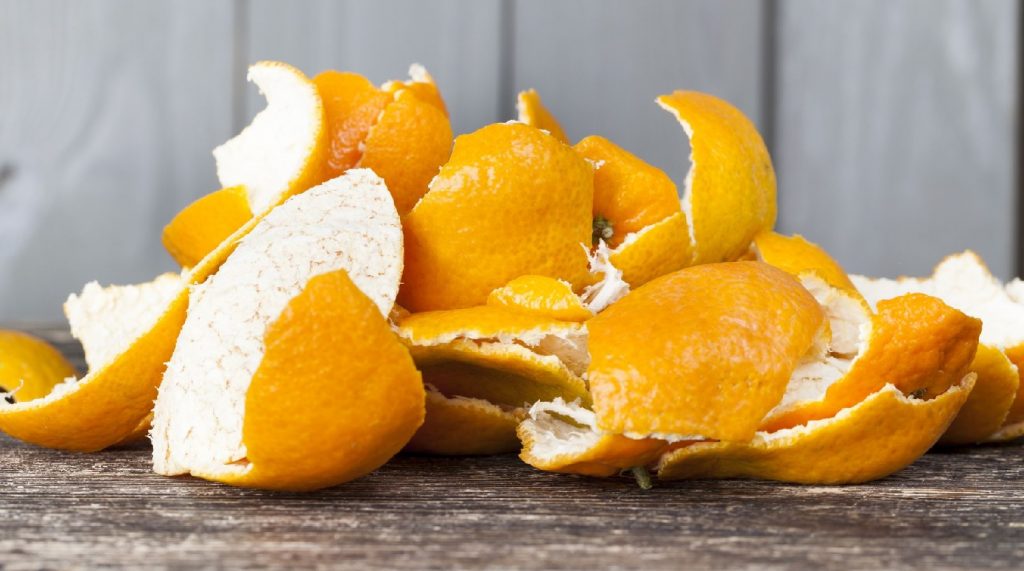
Vinegar insecticide
This is perhaps the easiest homemade insecticide recipe of all. Just add 1 ½ cups of vinegar (white or apple cider will work fine) to 4 cups of water, then shake it up and spray it on your plants.
The only downside to this vinegar insecticide is how easily some insects get used to it. For many gardeners, this simple vinegar solution will work for years. For others, it loses its potency quickly. If the bugs in your garden aren’t bothered by vinegar, it’s time to get creative.
Make your homemade vinegar insecticide even more repulsive to pests by adding 5 to 10 drops of neem, mint, citronella, or lavender essential oils. You can also try adding ¼ cup of citrus peel water to help them get the message that they’re not wanted.
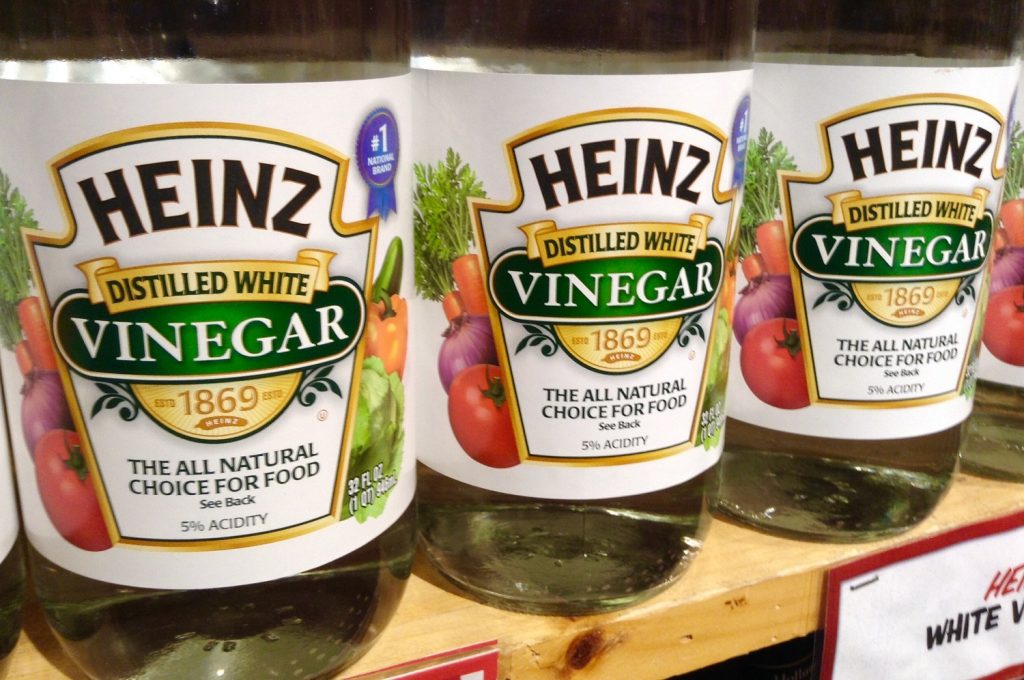
Essential oil insecticide
Lavender, peppermint, cilantro, and other herbs all make excellent companion plants because their foliage is rich in essential oils. Insects hate these strong-smelling, bitter-tasting extracts. And because these substances are natural, they’re all perfect for including in your homemade insecticide recipes.
Bugs are particularly sensitive to mint, lavender, neem, cedarwood, tea tree, lemongrass, citronella, cinnamon, and eucalyptus essential oils, so you’ll see the most success when you use these. To make an essential oil insecticide, first mix ¾ cup of vinegar and 2 cups of water in a large spray bottle. Then add 20 to 30 drops of the essential oil(s) of your choice. Shake well, and apply it to your plants.’
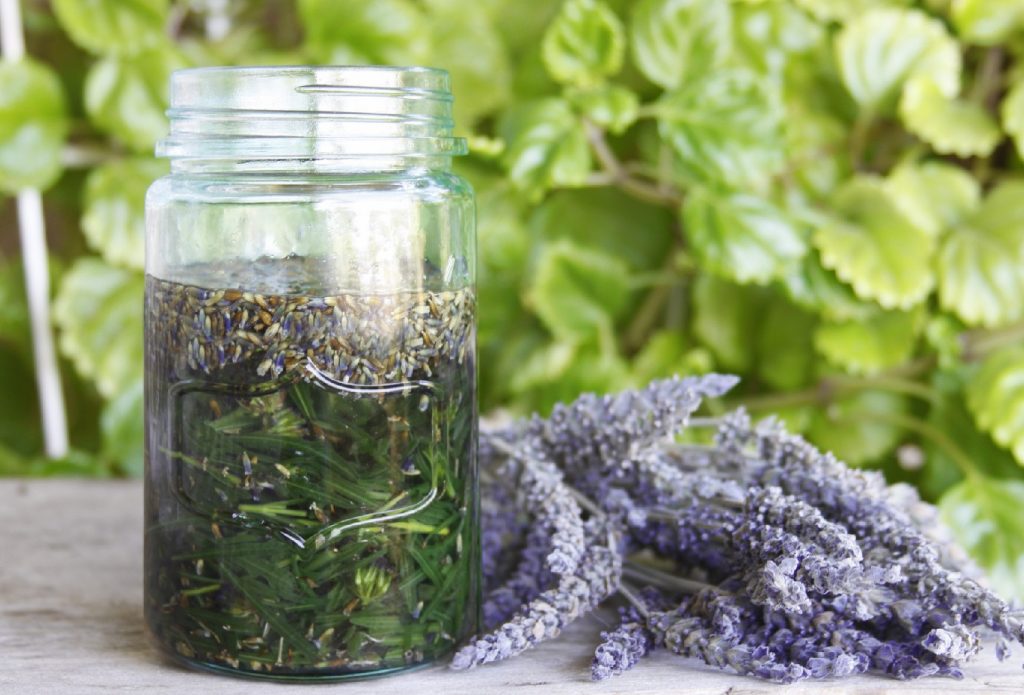
Insecticidal soap
Bugs hate soap. It tastes bad, it’s slippery and sticky, so it’s tough to land on. It makes eating your plants not worth the trouble, which is why you should be using it in your homemade insecticides. While you can certainly use dish soap to help repel insects, homemade insecticidal soap is much more effective.
To start, you’ll need pure Castile soap. This is a vegetable-oil-based soap which makes it well-suited to repelling insects because they dislike vegetable oil about as much as they dislike soap. Start by adding 3 tablespoons of Castile soap to 1 gallon of water. The resulting mixture has a very neutral odor, but you can add a few tablespoons of onion or garlic juice to make it more pungent.
Insecticidal soap is great for repelling aphids, thrips, whiteflies, and other insects. Be sure to apply this homemade insecticide to the undersides of the leaves as well as the tops. And be careful not to get any in your eye as you apply it.
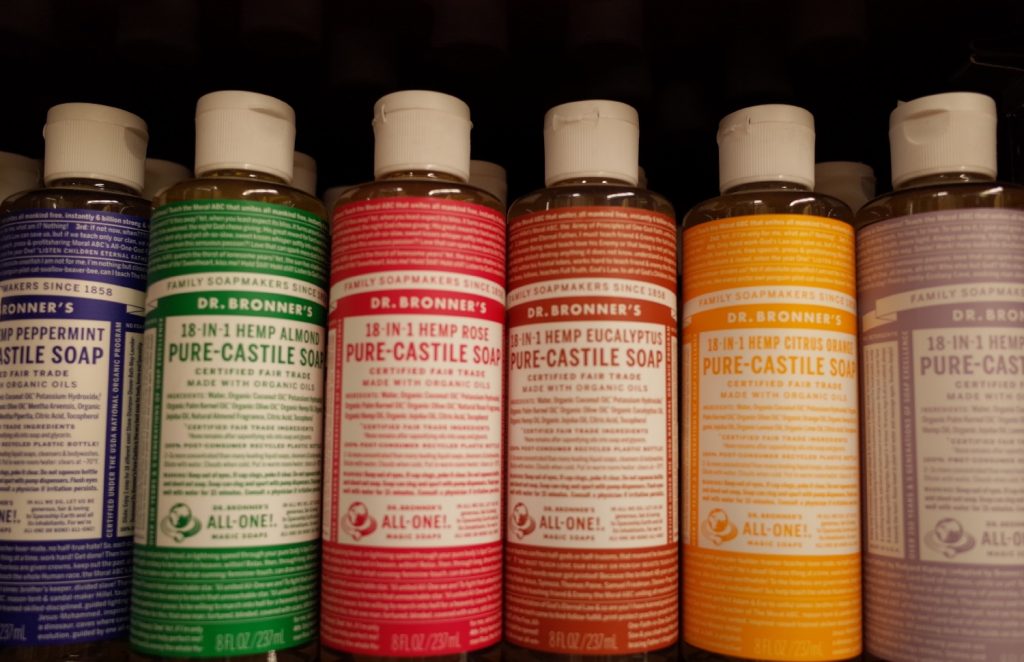
Vegetable oil insecticide
If you don’t have Castille soap on hand and you need to mix up a homemade insecticide fast, you can use vegetable oil instead. Simply mix 1 cup of any vegetable oil with 1 teaspoon of dish soap. Add 2 to 3 tablespoons of this concoction to a spray bottle along with 4 cups of water and spray it onto your plants.
Not only are bugs repelled by it, but vegetable oil has the interesting benefit of preventing insects from transmitting viruses from sick plants to healthy ones. So using vegetable oil doesn’t just keep bugs off your plants, it supports the well-being of your whole garden.

Garlic insecticide
Like other members of the Allium family, including onions and chives, garlic is rich in sulfur. This is what makes it such a great companion plant. Insects hate this root vegetable’s pungent aroma and will go out of their way to avoid it. So using garlic as an ingredient in homemade insecticide sprays is a no-brainer. But, be forewarned. This recipe takes a lot of garlic. Consider making it outside so you don’t smell up your kitchen.
Take 2 whole bulbs (not cloves) of garlic and toss them into a blender with 2 to 4 tablespoons of water. Be sure to peel some of the excess skin off of the garlic. You don’t have to remove all of it, but try to get rid of the bulk of it because it will clog your blender and dull the blades. Puree the ingredients then store the mixture in a quart-sized jar and let it sit overnight.
Once your garlic water is ready, strain the garlic pulp out and mix in ½ cup of vegetable oil along with 1 teaspoon of Castille or dish soap. Stir the concoction gently so as not to agitate the soap while you fill the jar the rest of the way up with water. Mix 1 cup of this condensed mixture into 4 cups of water to use it as a homemade insecticide for your plants.
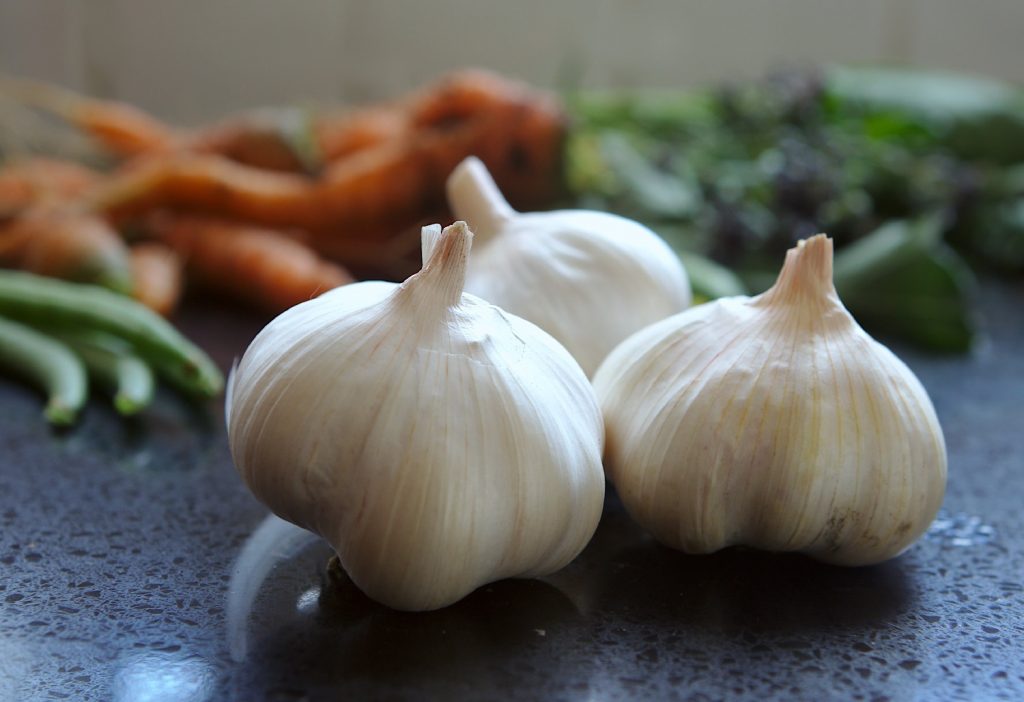
Baking soda insecticide
Dissolving 1 to 2 tablespoons of baking soda in a gallon of water is all it takes to make this homemade insecticide. Baking soda works to repel thrips, aphids, mites, and many other common garden pests. It’s also a natural fungicide, perfect for treating powdery mildew.
This baking soda insecticide works well on its own, but because it’s a bit runny, you may find yourself having to reapply it every other day. Try adding a teaspoon of soap to this mixture to help it stick to your plants’ foliage. Making the mixture more pungent by adding essential oils or garlic juice can be helpful, too.

Diatomaceous earth
Comprised of microscopic fossilized aquatic organisms, or diatoms, diatomaceous earth is highly abrasive. It kills insects within hours by penetrating their exoskeletons and leeching critical lipids from their bodies, dehydrating them from the inside out.
Diatomaceous earth works incredibly well as an insecticide, you just have to be careful how you apply it. Sprinkle diatomaceous earth near the base of your plants away from the flowers and buds, applying it liberally to the ground around them. This will kill aphids, mites, snails, slugs, and other ground-dwelling insects without harming bees and other pollinators.
Because diatomaceous earth is so dusty, you shouldn’t mix it with anything else. Apply it first, allow it to settle, then add other ingredients. You can spray essential oils on top of the diatomaceous earth to help repel insects. Sprinkling diatomaceous earth at the base of your plants and spraying their foliage with insecticidal soap is a great one-two punch that will stop damaging insects in their tracks.
Making homemade insecticide sprays: a few tips
Homemade insecticides are easy to make. Even if you don’t have all of the ingredients for one of these recipes, if you can scrounge up one or two ingredients from several of them, you can use those to create your own insect repellent. Pay attention to which ingredients the bugs in your garden dislike, and feel free to alter these recipes as you see fit.
The important thing to remember is to switch things up now and then. Alternating between two or three homemade insecticide sprays will keep the pests in your wild yard guessing, so they won’t be able to build up a tolerance to them. Being unpredictable is the best way to repel insects so you can keep your flowers and vegetable plants healthy.
